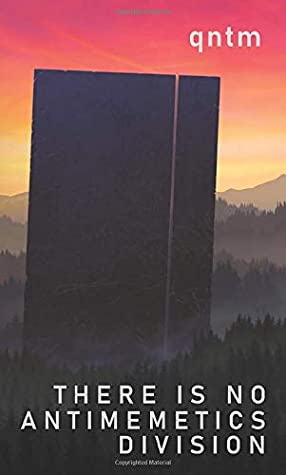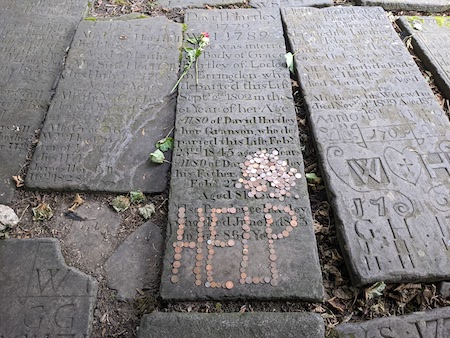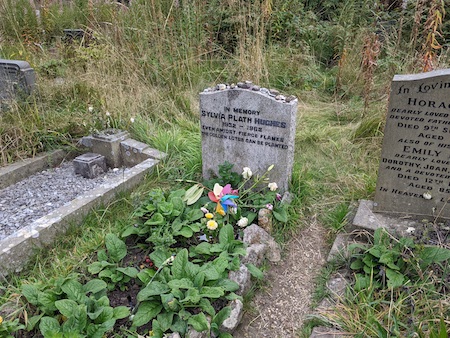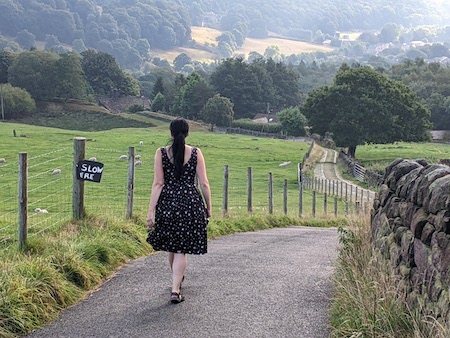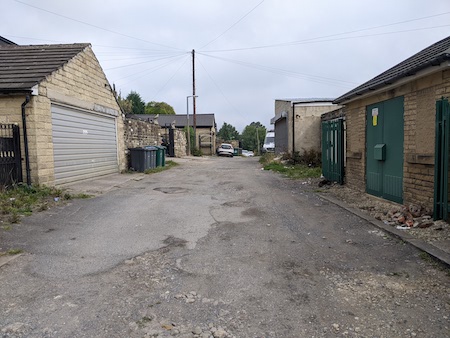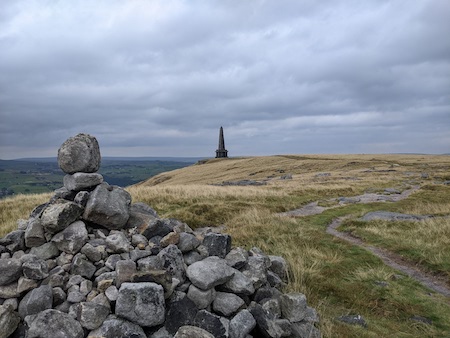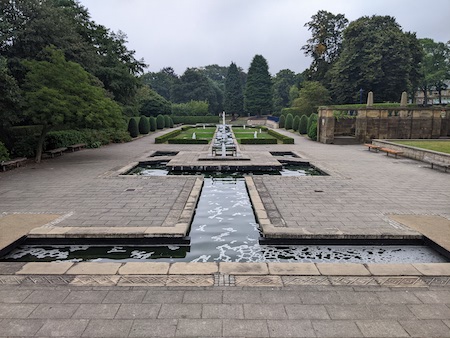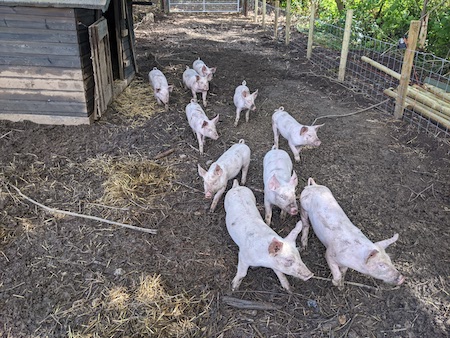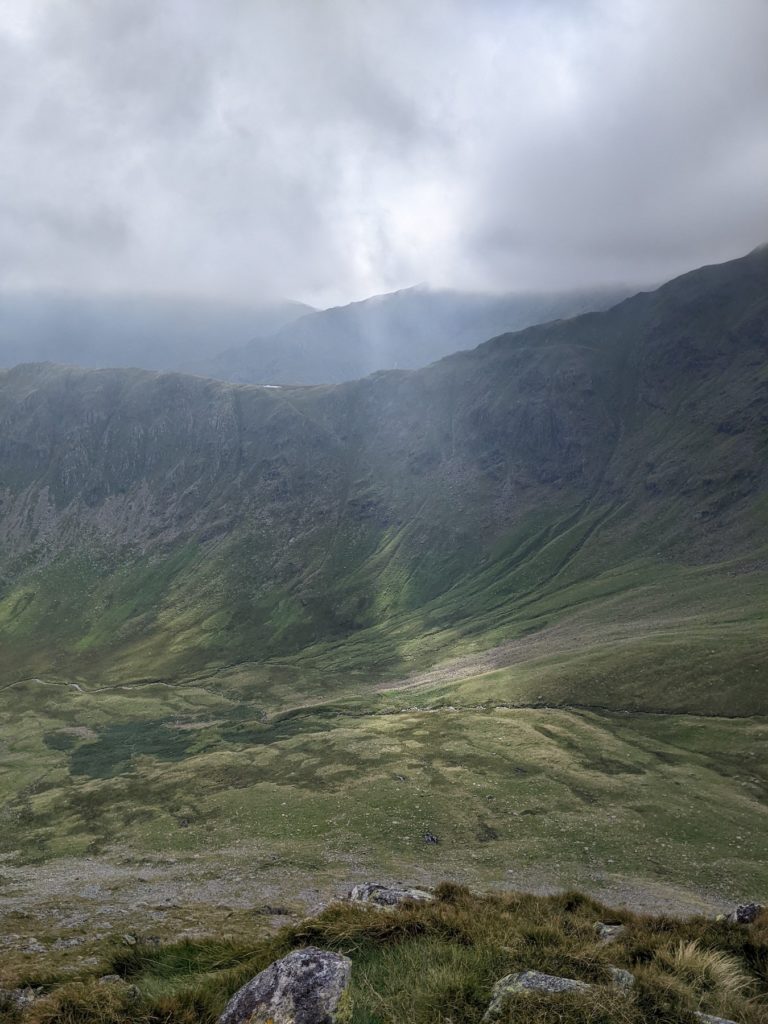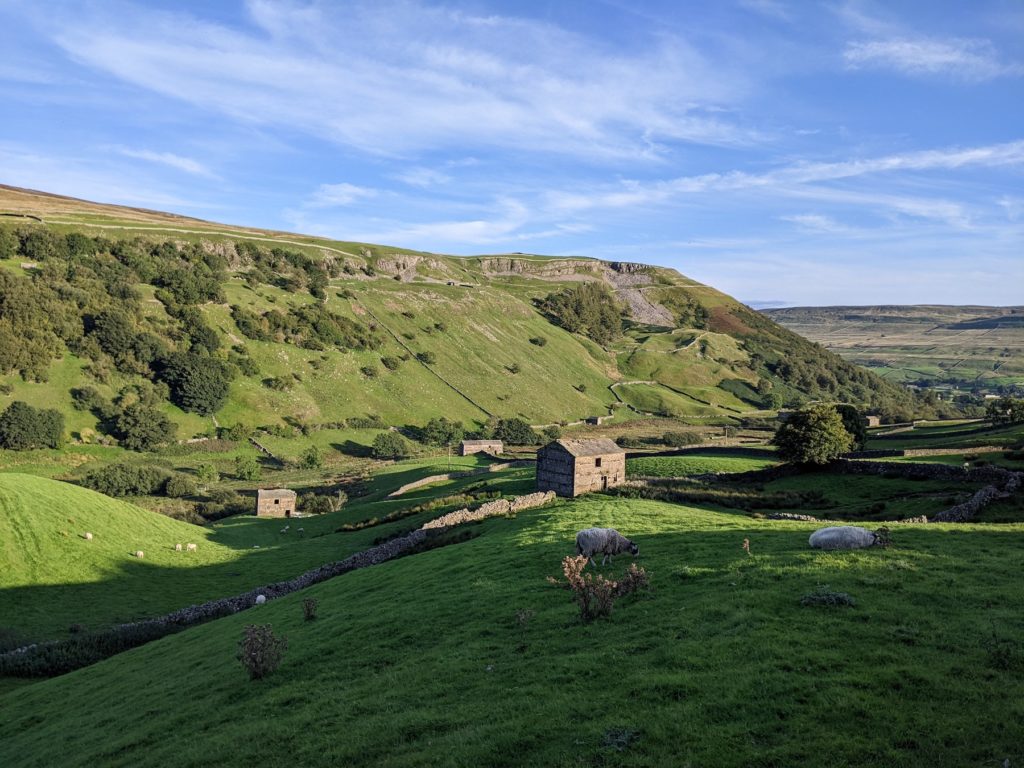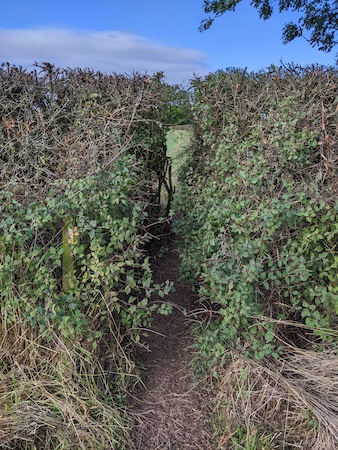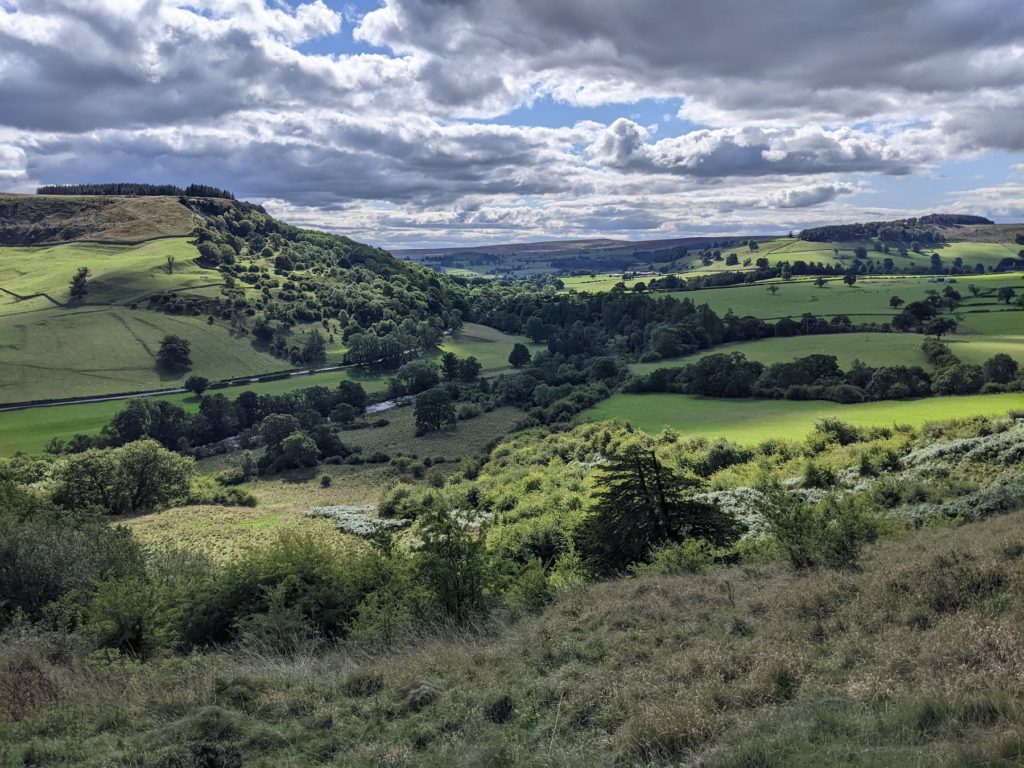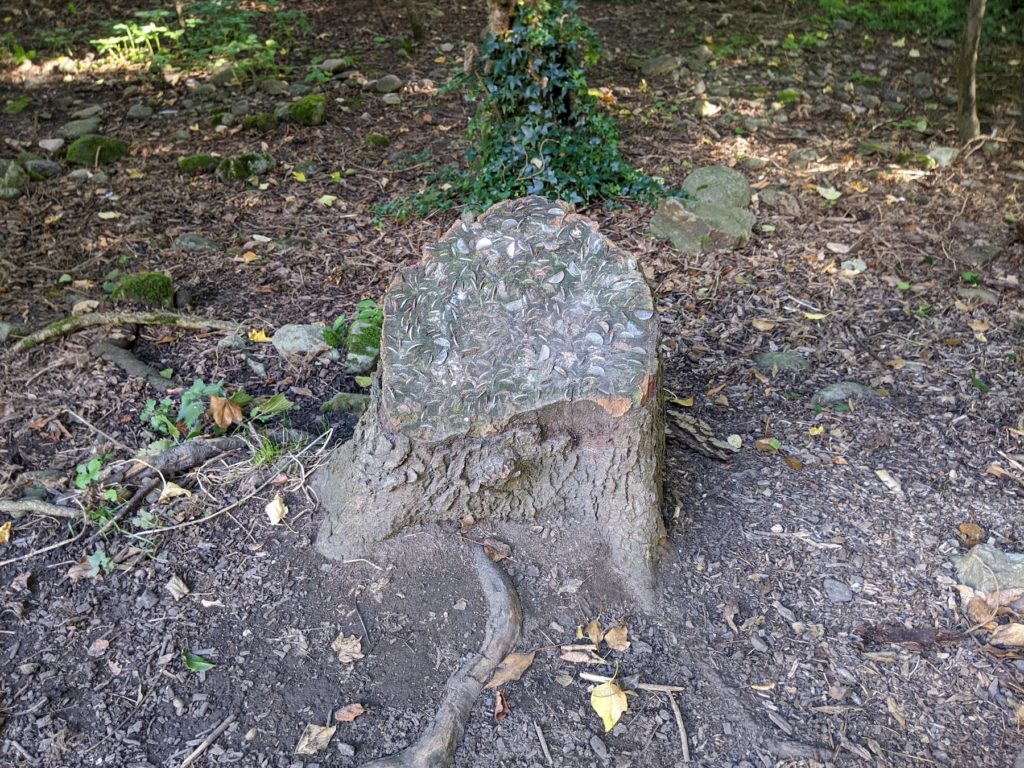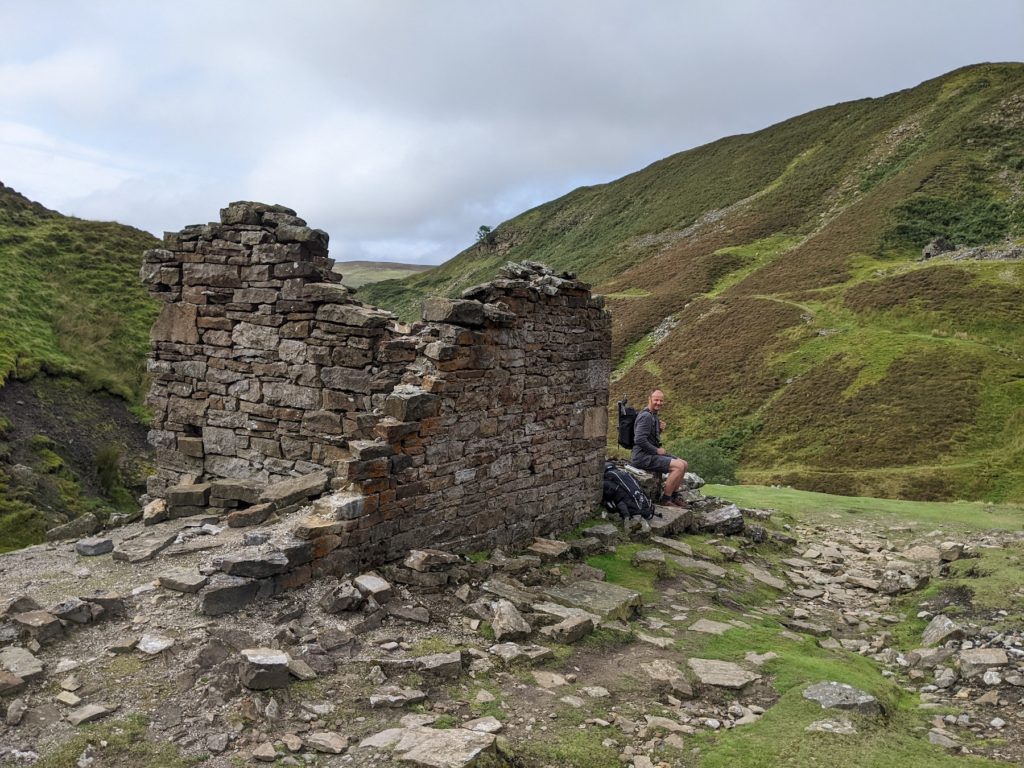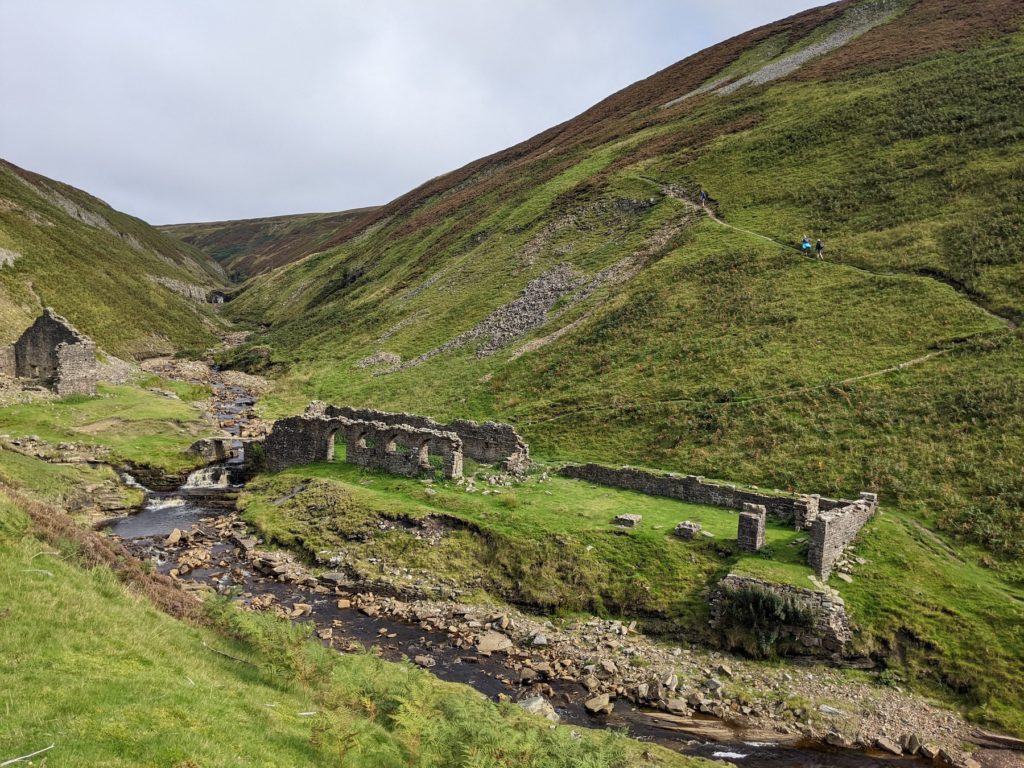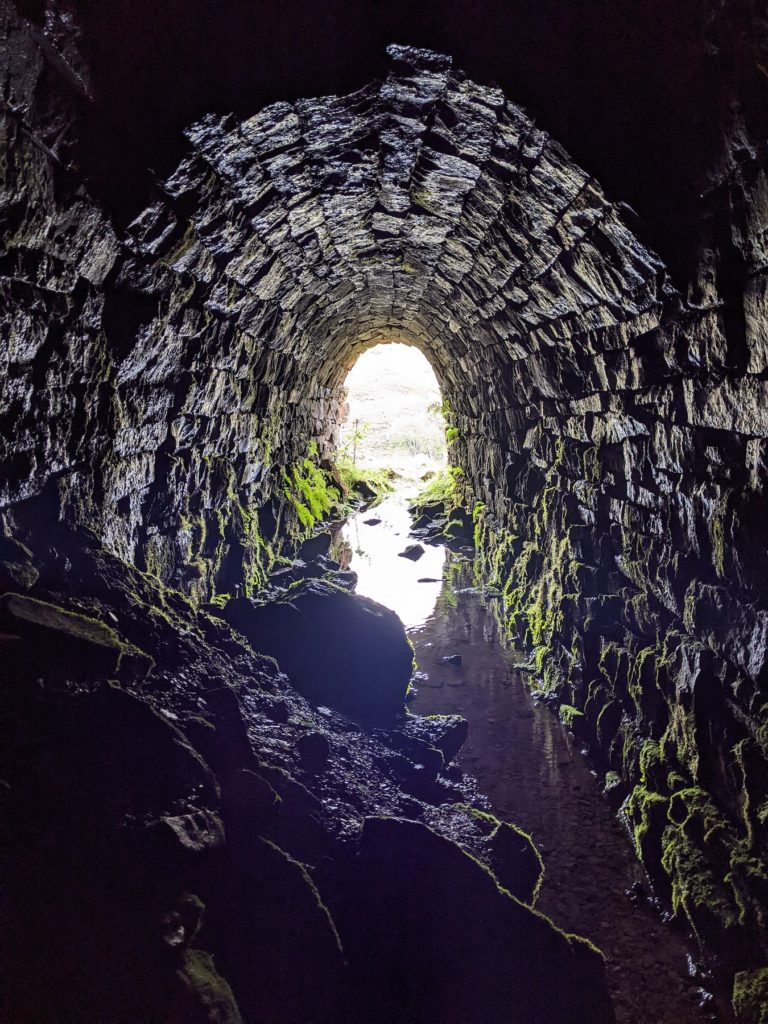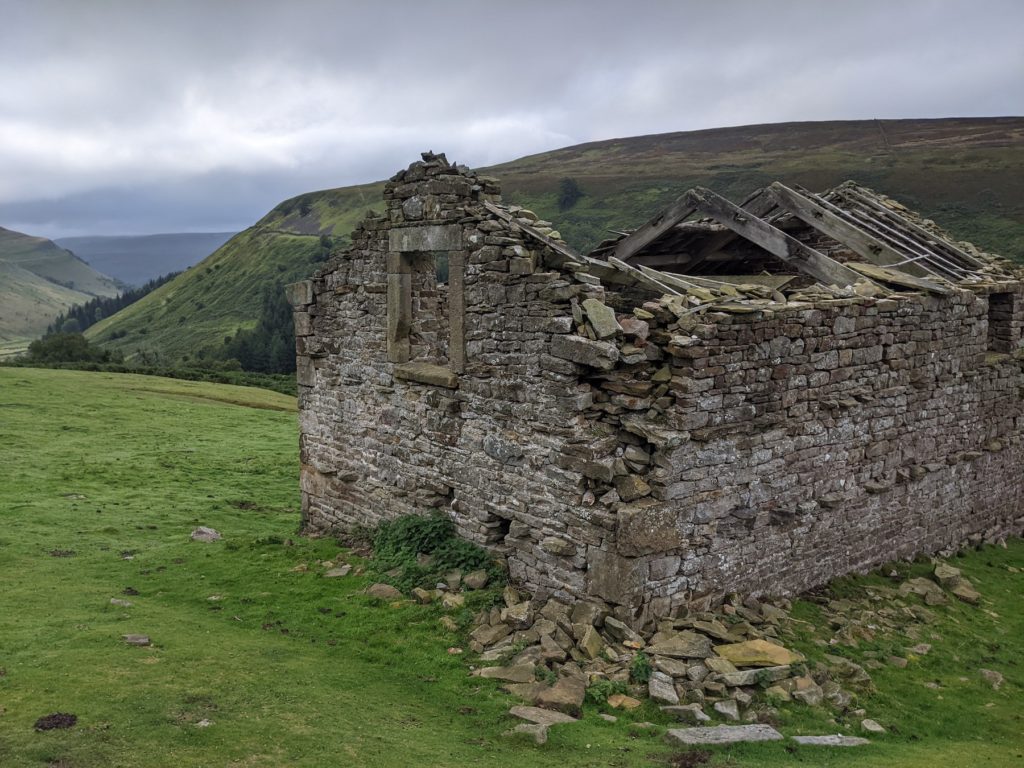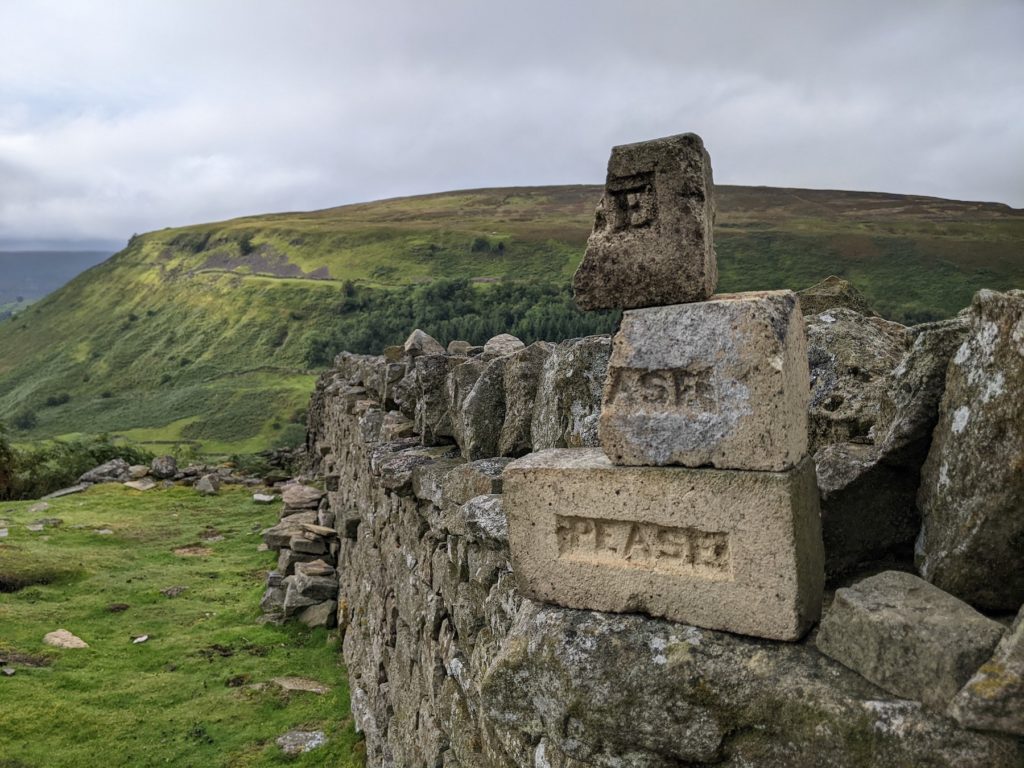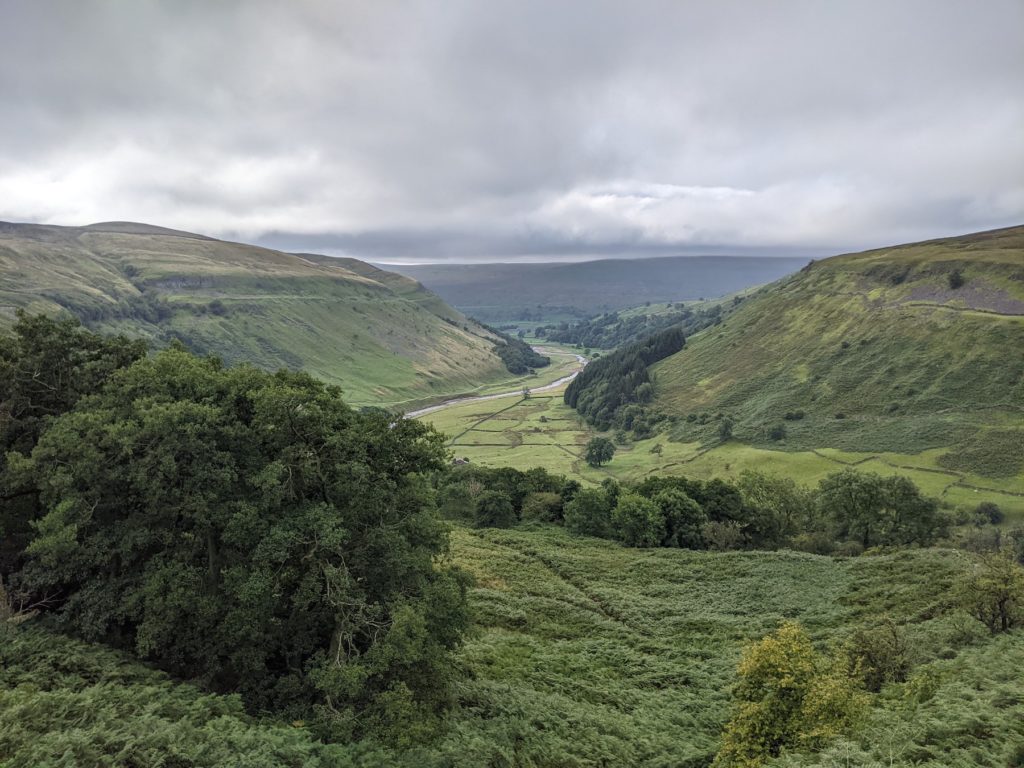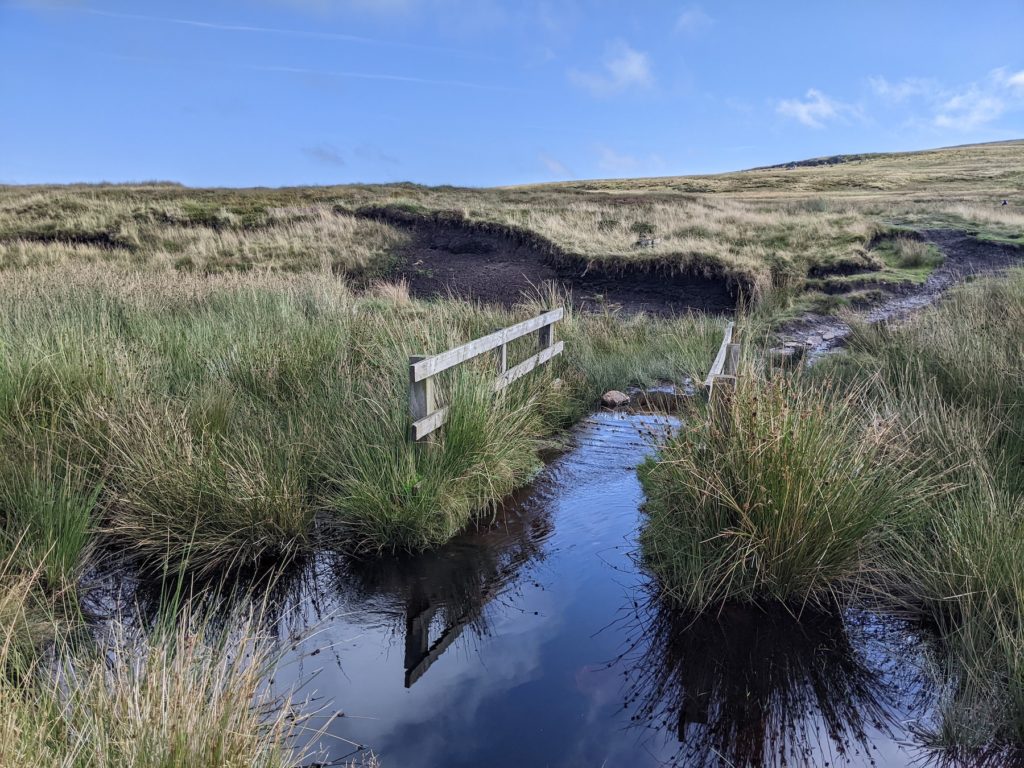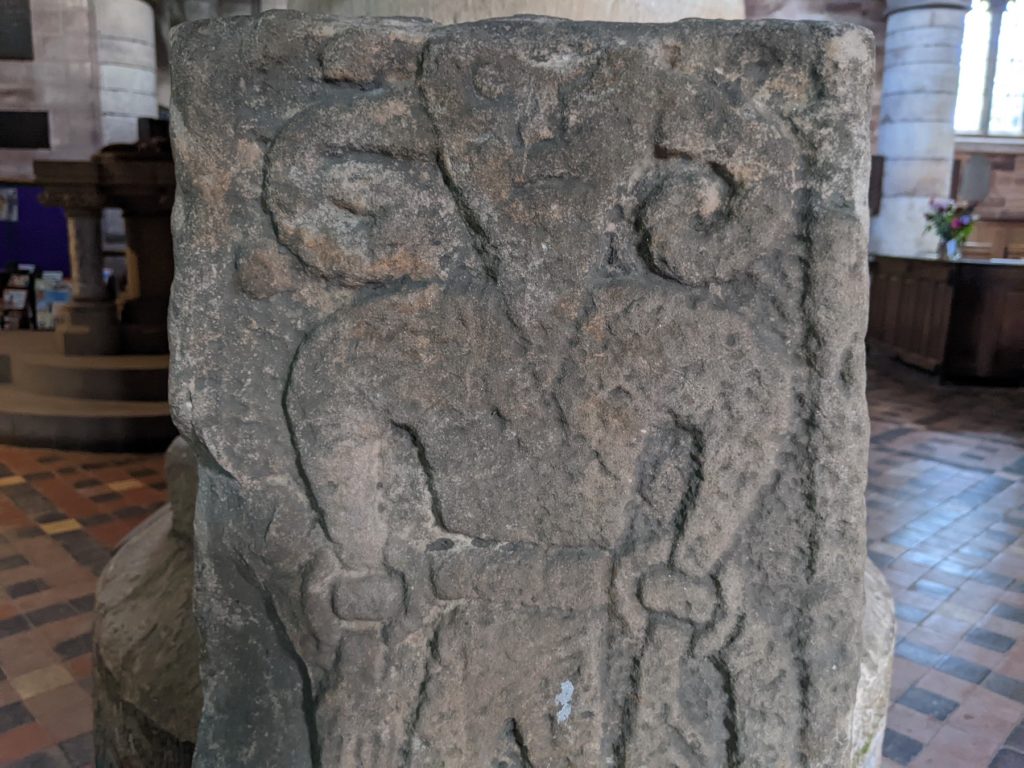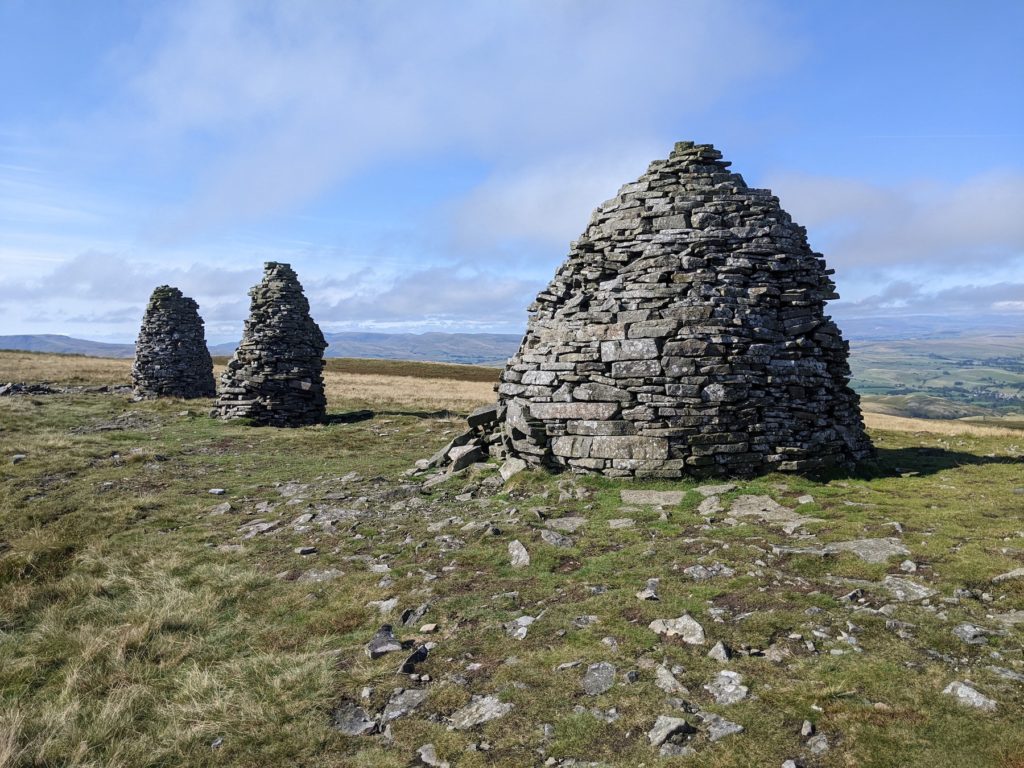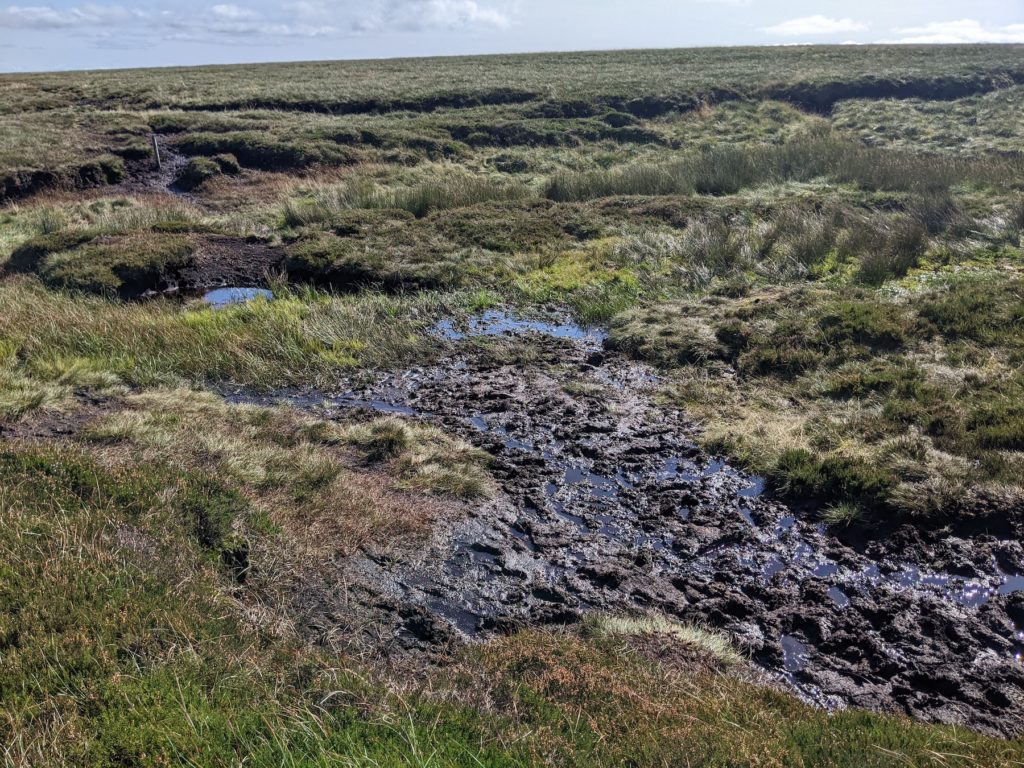Bank Holiday Monday, and I was supposed to be in County Durham, visiting my friend and fellow-pilgrim Dan. My handbrake was playing up, so Dan set out to visit me in Hebden Bridge instead, arriving a little after lunch with Molly the sheepdog. We ate burritos in the park then followed the wooded valley of Hebden Breck towards Heptonstall. This village sits on a hilltop above Hebden Bridge and was the larger settlement until the Industrial revolution, when the bottom of the valley offered water to power mills.
Walking through the woodland along the river, it is easy to overlook how the water has been domesticated. Massive stone walls channel the route, but they are so old and moss-covered that it’s easy to think of them as natural. Dan stopped to point out a chopped tree that had been transformed with the addition of two figures. One was a white china rabbit holding a drum that nestled among the moss where a trunk had been severed. Above it, slightly smaller, was a statue of a gnome, with a faded yellow smock and a pale blue hat. We didn’t disturb them in case they were important to someone. An offering to the woods, maybe.
There are numerous paths to Heptonstall. The road up from the town is a long tarmac slog, but various footpaths tangle on the hillsides, some offering easier walks. The blackberry bushes were heavy with fruit, some of them pale-tasting, others vivid and sour. We picked our route by taking whichever path looked most interesting, finally emerging near the cafe, whose keeper was proud of the Biscotti Cheesecake that Dan ordered. We ate on a bench, while a nervous cat watched Molly.
Heptonstall has two churches standing side-by-side. The original, dedicated to the English martyr Thomas a Becket, was damaged in a gale in 1847 and now stands as a ruin, the bones of a building. The new church was built in the old church’s grounds, and dedicated to a different Thomas, the apostle who doubted the resurrection. It seemed strange to have the same name for the church while changing who it referred to, and I wondered why Thomas a Becket was out of favour. We wandered through the ruin with Molly, who was visiting her first church. In a small recess someone had placed a painted rock, a memorial to the slaughter in Dunblane, 25 years ago, when a gunman took seventeen lives. Between the ruin and the new church is a flagstone graveyard, the floor tiled with flat black markers, each detailing one of the dead, all made slightly uneven by time. It was here we encountered our first Heptonstall shrine.
David Hartley, also known as King David, was the leader of a notorious group of counterfeiters, the Cragg Vale Coiners. They would take coins and shave metal from them to be used in casting new coins. The gang were violent men, eventually hunted down for murder, but they are remembered as icons of resistance. They are the subject of a Chumbawumba song (“deliver us kicking from our pokes and sacks to the hills of Hebden, hell and Halifax”) as well as Ben Myer’s book The Gallows Pole which has been filmed for release in the Autumn. Hartley was hanged in York in 1770.
King David’s grave stands out. It lies in the shadow of a tree, and offerings have been placed on the stone’s smooth black surface. A couple of red roses, and a scattering of coins – it’s become a custom to place money on King David’s grave. It’s an example of what folklorists refer to a ‘ritual litter’. Other examples would be the roadside shrines dedicated to accident victims, or the pieces of cloth tied to rag trees. In a nearby valley from King David’s grave is a coin tree, where passers-by have pushed coins into a fallen rotting trunk. Dr Ceri Houlbrook has asked people why they participate in these rituals, and their explanations refer to luck, to wishes, and to imagined traditions. Whether it’s trainers thrown into a particular tree, coins cast into a fountain, or graves turned into shrines, we are eager to make the world holy.
Today, someone has arranged some of the coins into a plea: HELP. It’s August Bank Holiday, but Britain is looking at a grim winter. Along with the threat of covid mutations, strain on the NHS and an economy hobbled by Brexit, domestic fuel prices look like they will increase by 80%. For businesses, the situation is even worse, with care homes and schools facing the threat of bankruptcy. The country feels strained and exhausted. Rather than look for a solution, the government has been distracted by an endless leadership contest. Right now, pleading for help from counterfeiters, dead two-and-a-half centuries, seems more likely to bring help than the government.
We move on, past Thomas the Apostle church, crossing a track to reach another graveyard. This one is not as full as the other, with a strip of empty, unmown grass before the graves, which include the resting place of the poet, Sylvia Plath. It is the second of Heptonstall’s shrines. The grave is easy to find among the others, a cluster of people standing by it. We wait for our turn.
The stone is simple, and small rocks border the soil surface of the grave-bed. Green plants with veiny leaves cover most of the surface – possibly alkanet – and a small child’s windmill stands above them. Among the plants you can see pens that have been placed into the soil. Are they left as offerings? Or do people come back to retrieve them, having charged their pen in the famous writer’s grave?
The headstone bears her name, her dates (1932 to 1963) and a quotation: “Even amidst fierce flames the golden lotus can be planted“. Plath is named as ‘Sylvia Plath Hughes’, and the name she got from her Poet Laureate husband has been scratched, as if visitors have attempted to erase any claim Hughes has – Plath’s letters detail shocking physical abuse by him. On top of the gravestone, there rest a line of small stones, some of them holding down folded paper. Among them rests a small piece of violet heather.
Of course, I’m curious about what people have written on these pieces of paper – pleas, or tributes or even poems, perhaps. But I would not touch them – offerings in a holy place seem like something that should be allowed to be private. We head on, taking a path down by Hell Hole Rocks back to my house, away from the shrines of Heptonstall.
